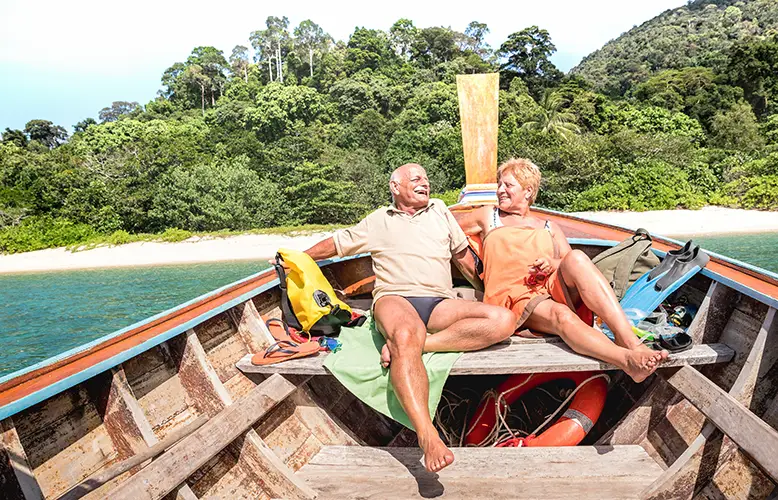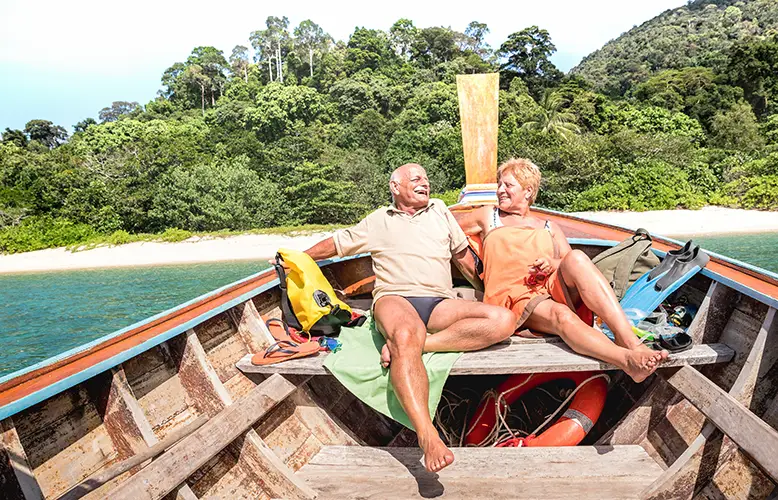
Traveling is one of the most enlightening experiences. It pushes you outside your comfort zone and introduces you to new cultures, foods, and perspectives. But whether you're jetting off to a remote island or heading out for a local hike, safety should never be an afterthought. This is especially true in the field of leisure travel, where safety protocols are often different than “normal” travel.
Next is the electricity and driving power source elements. Short circuits, loose wires, exposed cables, and more can ruin your best-planned vacation. That's where experts like The Local Electrician swoop in, but more on that later.
Choice of travel destination
The process of choosing a destination is much more than choosing an attractive location. This includes carefully analyzing the potential risks and hazards present in your chosen destination. This requires doing a great deal of research into the area's political climate, crime rates, and overall safety.
Safety measures start before you even pack your bags. Be familiar with local customs and traditions so you don't unknowingly offend locals or break the law. Check the latest travel advisories issued by trusted organizations such as the World Health Organization (WHO). Do you have social anxiety? A disease outbreak? Knowing these details will help you make safe and informed travel plans.
If possible, get information directly from people who have been there before. Connect with other travelers online and ask for helpful advice. Are there any areas to avoid? Are there scams targeting tourists? This kind of knowledge will prove essential.
Please note that even though certain attractions may seem suitable for photography, they may be dangerous due to unforeseen reasons such as wildlife or storm surge. You may be adventurous, but it's important to prioritize safety over thrills.
If an emergency arises while you're traveling, it's important to have quick access to important contact information. Therefore, travelers are advised to keep a list of relevant phone numbers, such as local ambulance services, police stations, and the nearest embassy or consulate.
It is also necessary to understand the country's emergency services. Not all countries support 911. Researching this in advance will save you valuable time in the event of an emergency.
Keep digital and physical copies of your identity and travel documents safe. If your device is lost or stolen, creating a backup will make it easier to verify and replace it.
Finally, leave a copy of your itinerary with someone at home. Having someone know your whereabouts will make it easier to track and assist you in the event of an unexpected incident.
Handling travel documents
Handling complex travel documents is very important. Make sure you have your passport, visa, and other necessary documents in order for a smooth and worry-free journey. Your passport must be valid for at least 6 months after your planned return date.
Visa requirements vary depending on nationality and travel destination. It is important to allocate sufficient time for visa processing, especially in situations where complex considerations may ensue. It is equally important to arrange travel tickets and confirm departure date, location and time in advance to avoid last-minute panic and inconvenience.
- Keep digital and physical copies of all documents on hand.
- Please be sure to bring an ID with your photo and address.
- Be sure to obtain a permit for any special activities such as diving or wildlife photography.
All documents are critical to your safe journey, so please handle them with the utmost care. Ultimately, efficient processing of travel documents creates a seamless speed that allows you to handle unexpected situations with relative ease.
stay safe in public
When abroad, understanding some basic safety protocols will go a long way in ensuring a comfortable stay. Be aware of your surroundings to protect yourself from minor to serious crimes. This means avoiding deserted areas at night and being careful of your belongings in crowded public places.
Using tech gadgets openly can attract unwanted attention and lead to theft. Therefore, take it out only when necessary. In addition, keep valuables such as jewelry or expensive electronics safe in your accommodation if they are not needed that day.
Tips to protect your belongings:
Avoid flashiness: Avoid displaying flashy jewelry or cash that may attract thieves.
Use of safe safe: Take advantage of the safety lockers provided by many hotels and lodges.
Smart storage: Hide cash, credit cards, and passports in inside pockets or money belts.
In busy transportation terminals, make sure your luggage is always within sight. Using a high-quality lock on your suitcase will prevent theft during transport. Finally, to prevent drink tampering, never leave your drink unattended.
Navigate with respect for local culture
Travel provides an opportunity to experience diverse cultures first-hand. Understanding and integrating into the local culture provides a rewarding and immersive experience.
Learn local language phrases like “hello,” “thank you,” and “excuse me.” Please note that social norms and customs are different everywhere. Therefore, respecting local lifestyles and traditions greatly contributes to a harmonious experience.
- Please strictly adhere to the dress code. Certain cultures value humility. So try to blend in instead of standing out.
- Avoid discussing sensitive topics such as politics or religion.
- Ask for permission before photographing local people or sacred sites.
If you're unsure about cultural nuances, ask a local for advice or do some personal research. Respectful awareness of cultural norms fosters connections with locals and can incredibly enrich your travel experience.
Weather and environmental conditions
Another safety measure when planning a trip is to consider weather and environmental conditions. Understanding the climate will help you decide what clothing to bring. Proper clothing ensures comfort and reduces health risks related to heat stroke and hypothermia.
Environmental factors can also greatly influence your activities. For example, if there is heavy rain, landslides can make trekking trails unsafe, impassable, or dangerous. Due to ocean conditions, certain water sports are also prohibited during certain seasons.
- Please check the weather information regularly.
- Depending on your plan, carry emergency supplies such as a flashlight, batteries, extra food, and a raincoat.
Be aware that weather changes can be sudden and severe in certain locations. Therefore, being flexible with your plans based on the current situation can make a big difference in your travel experience. Experts at this website point out that voltage and power supplies also differ around the world, as do safety standards.
Food and water safety measures
While it may be fun, eating in a foreign country can lead to stomach illnesses and food poisoning. Changes in water sources and diet can cause digestive problems. Avoid drinking tap water unless it is labeled safe. Choose bottled water instead. When in doubt, it is safe to boil the water before drinking it.
Discovering local cuisine is one of the most fascinating experiences for travelers. However, please make sure to consume it in a hygienic manner. Food must always be freshly prepared and served warm.
- Avoid raw or undercooked meat.
- Avoid unpeeled fruits and uncooked vegetables.
- Dairy products should be consumed with caution in countries where milk is generally not pasteurized. Preference will be given to packaged products available from registered retailers.
Be aware that certain dishes may be too spicy for you to handle. Always carry medication related to eating disorders when traveling to avoid discomforts such as acid indigestion and diarrhea.
The last word
When it comes to leisure travel, safety is multifaceted, from choosing the right insurance to health precautions and cultural respect. By treating safety as a priority rather than an afterthought, you can set yourself up for a stress-free and rewarding journey. As the old adage goes, “Prevention is better than cure,” and nothing is more true than staying safe while traveling.


